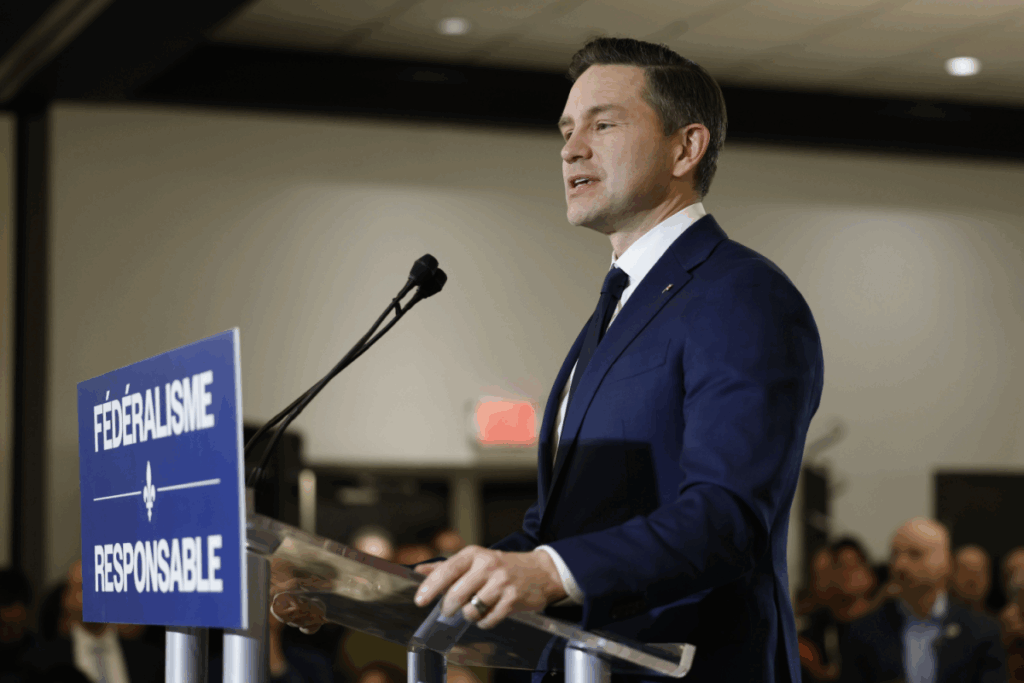A Battle for Political Survival
Pierre Poilievre, leader of Canada’s Conservative Party, is preparing for one of the most critical by-elections of his career as he attempts to re-enter the House of Commons. After losing his long-held Ottawa-area seat to the Liberals in the last general election, Poilievre is now contesting the rural Alberta riding of Battle River–Crowfoot. The vote comes as he faces a mandatory leadership review early next year, making his performance in this traditionally Conservative stronghold a decisive test of his political standing.
The by-election has drawn unprecedented attention, not only because of Poilievre’s high profile but also due to the record 214 candidates appearing on the ballot, many associated with a protest group seeking reform of Canada’s first-past-the-post system. To manage the situation, voters will be required to use write-in ballots rather than the usual pre-printed list of names. Despite the unusual circumstances, Poilievre is widely expected to win. However, observers caution that his margin of victory will be closely scrutinized.
An Unusual Contest in a Conservative Bastion
The Alberta riding has long been considered safe Conservative territory. Former MP Damien Kurek, who resigned to allow Poilievre to run, previously secured more than 80% of the vote. Yet the size of Poilievre’s win will carry significant implications for his leadership. Conservative candidates in the riding have consistently achieved at least 70% of the vote, and anything less could raise questions about his ability to energize the base.
Independent candidates, such as retired veteran Bonnie Critchley, have challenged Poilievre’s candidacy, arguing that he is using the riding as a stepping stone rather than representing its local concerns. Others have questioned whether his candidacy is more about political strategy than genuine community connection. Nonetheless, his Alberta roots and Conservative values are expected to resonate with many voters in the agricultural and energy-heavy region.
Regional Concerns and Separatist Sentiment
The campaign has drawn attention to western Canada’s frustrations with Ottawa, particularly in Alberta’s energy sector. The riding’s economy is heavily linked to oil, gas, and agriculture — industries that have expressed dissatisfaction with federal policies and trade disputes. Recently, China imposed a 76% tariff on Canadian canola, directly affecting local farmers and reinforcing perceptions of neglect from the federal government.
In addition, separatist sentiment in Alberta has been growing, reflecting discontent with national politics. While some right-leaning voters support the idea of separation, Poilievre’s campaign has emphasized loyalty to Canada, positioning him as a candidate who can balance western frustrations with national unity. His leadership of the Conservatives is being tested not only on his ability to win back a seat but also on his capacity to keep disillusioned voters within the party.
Looking Ahead to Leadership Review
Even if Poilievre wins comfortably, his performance will set the tone for the mandatory leadership review scheduled for early next year. Losing his seat earlier this year was a major personal setback, even though the Conservative Party overall increased its share of the national vote. With the Liberals under new Prime Minister Mark Carney enjoying strong polling numbers, Poilievre must prove he can reestablish his presence in Parliament and mount a credible opposition.
The Battle River–Crowfoot result will be a critical measure of Poilievre’s strength heading into the next phase of his leadership. His margin of victory, the support he garners in a Conservative heartland, and his ability to reassert himself on the national stage will all be closely watched as indicators of whether he can remain the party’s standard-bearer.


